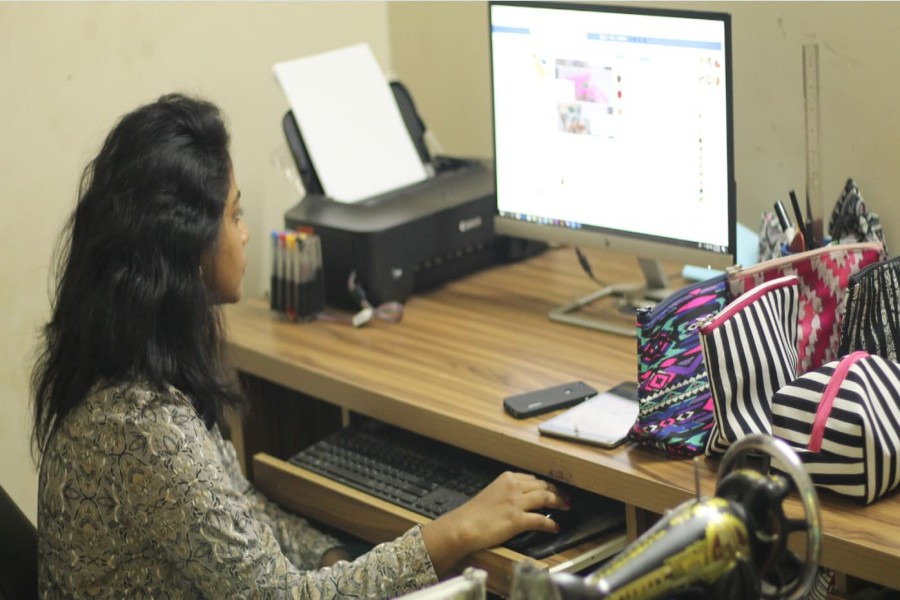The unfurling economic downturn caused by prolonged shutdowns on account of the coronavirus pandemic has hit lives and livelihoods hard all across the world. In America, the richest country on the planet but to have suffered nearly one-third of global infections and deaths, studies reveal that a particular group of people are the worst sufferers.
They are called the millennials -people who were born between 1980 and 1997. The American millennials did almost everything right: "they avoided drug and alcohols', writes Annie Lowrey, 'went to college in record numbers' and sought stable and meaningful jobs and careers. They are the star-crossed or as many would like to call them 'a lost generation' now that they have been subjected to a second recession likely to be as catastrophic as the Great Depression. They have already been through the 2008 great economic recession, the legacy of which is yet to be borne by the majority -about three-fourth -of them.
At a time when the American millennials - at least those who completed college education -were expecting a turnaround, the onslaught of the pandemic has literally extinguished their hopes and dreams. Their extra vulnerability has been badly exposed by this economic crisis triggered by the deadly virus. The financial tsunami facing them is brought to the fore by a study, the Data for Progress. It finds that an overwhelming 52 per cent Americans under the age of 45 have lost a job, furloughed or had their hours reduced compared with 26 per cent above that age limit. All this is due to the pandemic.
How are their counterparts in Bangladesh that is Bangladeshi millennials faring? Sure enough, the dissimilarities between the US socio-economic systems and those of Bangladesh are all too conspicuous. Yet broadly the millennials across the Pacific suffer identical ordeals on many counts. The generation of the 80's and 90's in Bangladesh has not been a witness to military or autocratic rule except an army-backed regime for a short period.
This generation, however, had often been subjected to different academic experimentations like introduction of multiple choice, structured or popularly called creative sets of questions in exams, gradation in merit evaluation and in the process liberal exam script evaluation. Students of this generation were also the beneficiaries of proliferation of private universities where tertiary education could be obtained, in many cases, more on commercial consideration than purely on the basis of merit.
How did such a lack of standardisation help the Bangldeshi millennials for their livelihoods? Sure enough, a select band of students of English medium did not have to go through any such lax system, thanks to the overseas curricula followed and the supervised exams. To the other extreme, though, the madrasha education has lagged behind.
Overall, for the majority of the generation the picture has never been rosy right from the beginning. Its reflection is quite evident in the bleak unemployment picture of the country. If American millennials are worse off than X generation (people born between 1965 and 1980) or baby boomers (generation following the World War II) -their preceding generations, the graduates or post-graduates here in Bangladesh are no better than their educated parents. The unemployment rate in the country was 4.9 per cent in 2019 but youth unemployment was 12 per cent. What is galling is that 46 per cent of the university graduates are unemployed.
In the USA, students enjoy study loan from the federal government fund and the millennials there accepted loans in order to pursue college or higher studies for which they are to pay when they are placed in the job market. Now millennial borrowers are left with an average of $33,000 in debt in America. Notably, secondary students do not enjoy the facility and are not burdened with such debt. The American unemployed, moreover, can register for social benefits.
With no such government cushioning and increasingly higher expenditure on education -particularly in the private sector -the Bangladeshi millennials are already at a disadvantage. The poor among them are only more so. Now let's have a look how the coronavirus pandemic has pushed the American millennials on to the brink of hopelessness. During the recession of 2008, half of the American recent graduates did not find employment and their formal unemployment ranged between 20 and 30 per cent.
Under pressure of the debt burden, with crummy jobs and no or little savings, the US millennials are facing huge financial insecurity. For the first time in American history a generation will be poorer than their parents. How will the university graduates with high unemployment in Bangladesh face the emerging challenge posed by the coronavirus pandemic? There is already a mismatch between the country's education system and the job market's requirements, financial experts almost in a chorus complain of.
The education system follows the traditional system with hardly any radical review apart from increasing the number of departments in universities which hardly can meet the demand for the knowledge, more particularly skills, required. To take over the operation of the Russian built Rooppur atomic power plant Bangladeshi scientists and technologists are undergoing extensive study and training in Russia. Why are the industrial and other productive sectors' requirements not thoroughly assessed first and education curricula developed accordingly? A human resources ministry can make such an assessment and in collaboration with the education ministry it may come up with the right kind of educational reform to bridge the gap between the demand for and supply of human resources. This lockdown period could be better utilised for the purpose.


